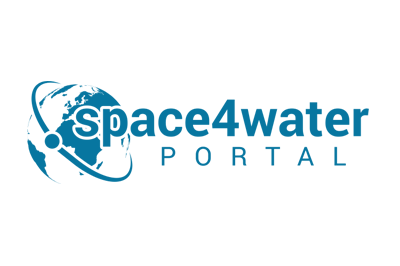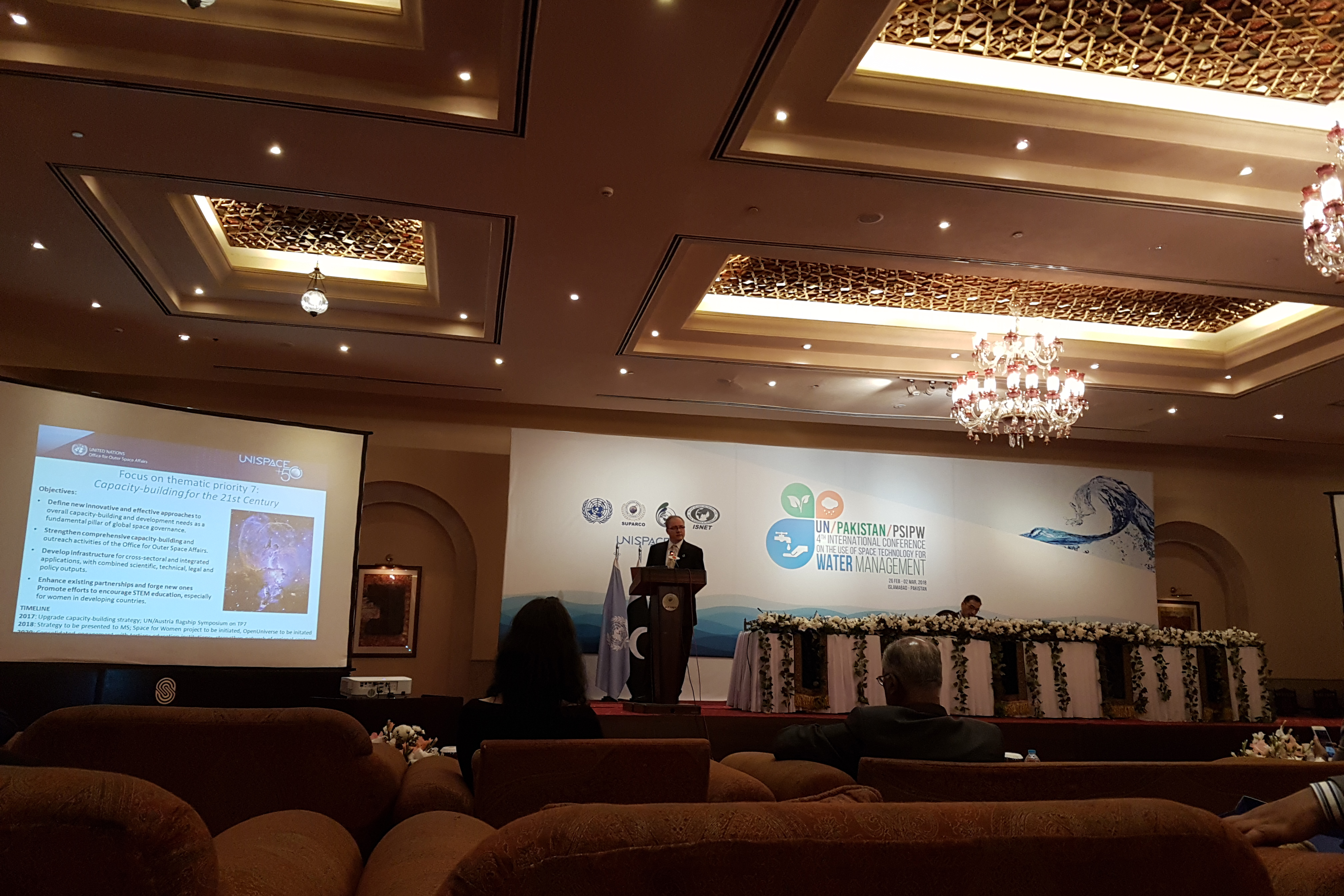Space4water portal
.

SDG 6 focuses on clean, accessible water for all. The goal aims to address water scarcity, poor water quality and inadequate sanitation globally. It promotes increased investments in water management and sanitation, and international cooperation and capacity building in this respect. Water conservation and management are among the most critical issues facing humankind. Space technology can help analyze global water cycles, map water courses, and monitor and mitigate the effects of floods and droughts. In 2016, UNOOSA and the
Prince Sultan Bin Abdulaziz International Prize for Water (PSIPW) signed a Memorandum of Understanding to collaborate on promoting their common goals, particularly the use of space-based technology for increased access to water. Through this collaboration, UNOOSA has developed and launched a portal focusing on space for water management, referred to as the
Space4Water Portal.
The Space4Water Portal is a multi-stakeholder platform for interdisciplinary knowledge exchange on space technologies and water-related topics. It serves stakeholders of both the space technologies sector and the water sector and aims at strengthening the links between the various actors and communities. Its scope is to foster knowledge exchange and bring the benefits of space to humankind, while one of its key focus areas of the portal is capacity building.
The portal brings together organizations active in the field to share information on projects, initiatives, satellite missions, and software, while enabling access to community portals, capacity building and training material, conferences, workshops, data, as well as news and publications in the sector, providing important services particularly to actors from developing countries.
Prince Sultan Bin Abdulaziz International Prize for Water joint events

The first cooperation agreement between UNOOSA and the
Prince Sultan Bin Abdulaziz International Prize for Water (PSIPW) was established in 2007. This collaboration enabled both parties to organize diverse capacity building events and workshops to share best practices and success stories on the use of space technologies for better water management. The wide geographical distribution of the events allows for a diverse audience to benefit from knowledge and information exchange to develop local capacities.
Among these events, particularly notable was the first United Nations/Saudi Arabia/UNESCO International Conference on the Use of Space Technology for Water Management co-organized by UNOOSA, UNESCO, PSIPW, and the King Abdulaziz Center for Science & Technology was held in Riyadh in April 2008.
Furthermore, the second United Nations/Argentina International Conference on the Use of Space Technology for Water Management was jointly organized by UNOOSA, as part of the activities of the United Nations Programme on Space Applications for 2011, the Government of Argentina, the European Space Agency (ESA) and the General Secretariat of PSIPW. The event was hosted by the Comisión Nacional de Actividades Espaciales on behalf of the Government of Argentina.
In 2014, UNOOSA, in cooperation with the Government of Morocco, ESA and the General Secretariat of PSIPW organized the third International Conference on the Use of Space Technology for Water Management. The conference was hosted by the Royal Centre for Remote Sensing (CRTS) on behalf of the Government of Morocco.
In 2018, UNOOSA, the Government of Pakistan and PSIPW jointly organized the
fourth International Conference on the Use of Space Technology for Water Management in collaboration with Inter-Islamic Network on Space Sciences and Technology (ISNET) to promote the use of space technology in water management for the benefit of developing countries.
In 2022, UNOOSA, the Government of Ghana and PSIPW organised the
fifth International Conference on the Use of Space Technology for Water Resources Management suppored by the European Space Agency and the Inter-Islamic Network on Space Sciences and Technology (ISNET) to promote the use of space technology in water management for the benefit of developing countries.
Lastly, in 2024 UNOOSA, the Government of Costa Rica and PSIPW organised the
sixth Conference on the Use of Space Technology for Water Management hosted by the Inter-American Institute for Cooperation on agriculture to promote the use of space technology in water management for the benefit of developing countries. This last edition had a focus on nexus topics related to agriculture under a changing climate.

